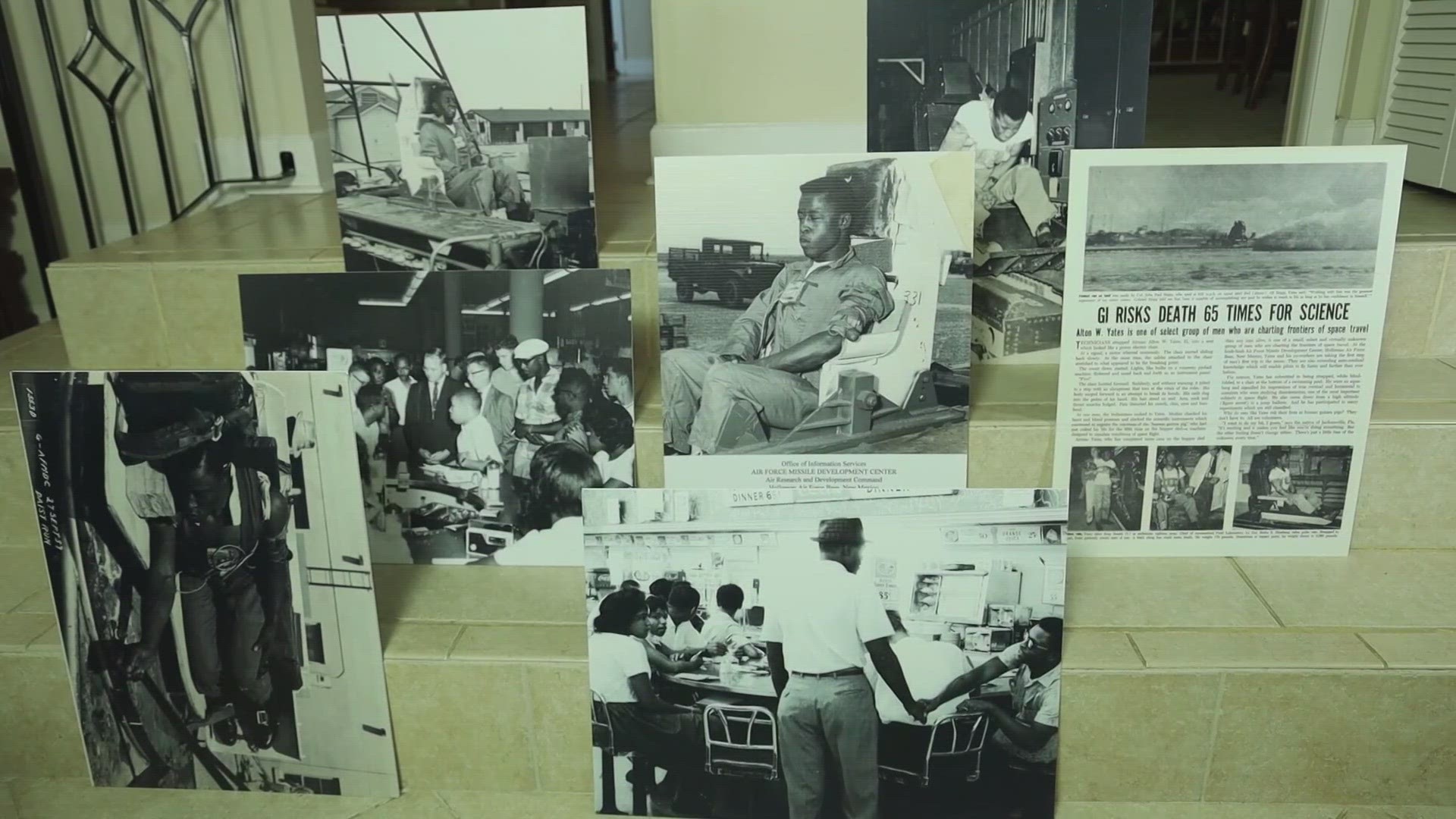JACKSONVILLE, Fla. — An American hero involved in early testing in the 1950s for what would become the space program, later became a civil rights leader. Retired U.S. Air Force officer, Lieutenant Colonel Alton Yates led sit-ins throughout the 1960s which led to integration, forging change in Jacksonville and far beyond.
Within the Yates' home situated along the Ribault River, you'll notice keepsakes on display. However, none tell the story of a past paved with strike quite like the 87-year-old man granted with many opportunities to use his voice.
Yates’ voice served as a catalyst for change while he worked within several mayoral administrations in Jacksonville. His mind and body were put to the test in the United States Air Force in the 1950s as a high-speed rocket sled test volunteer at what became the Aerospace Research Laboratory, developing methods of simulating space travel on earth.
“There's always a little bit of fear of the unknown but, when you are afforded the opportunity to be a part of something that is new, that can be useful," Yates said. "I just don't know how you resist that."
Under the direction of Colonel John Paul Stapp at Holloman Air Force Base, Yates risked his life more than 65 times. One experiment though, made what Colonel Stapp called "a fine specimen of a man" think twice.
“One of the scientists came up with the brilliant idea that maybe we should see what happens if the subject is submerged in water,” Yates said. “That meant you were going to be in a capsule with an artificial breathing apparatus and they were going to fly the sled down the track. That one gave me pause.”
His story is inked in history in Ebony Magazine, detailing life at Holloman.
“There was absolutely no segregation there,” Yates said. “You forgot that segregation and racism even existed.”
Discharged from the Air Force after his father became terminally ill, Yates would have to travel back in time, home to Jacksonville where racism was alive and well.
"I remember seeing this billboard on the side of the road and it said 'erected by the Knights of the Ku Klux Klan' and it had these pictures of Black men hanging from trees,” Yates said. “The sign on the bottom of that billboard, using the n-word said, 'Don't let the sun set on you in' whatever county that was."
Unable to sit in restaurants along the way from New Mexico to Jacksonville, a loaf of bread and peanut butter was all the American hero had to eat.
“On the rest of that drive, I made the determination that once I got home and got my dad situated, I would work just as hard to try to eliminate those kinds of conditions and other people feeling what I had felt,” Yates said.
And he'd go on to do just that as the Vice President of the NAACP's Youth Council, organizing demonstrations including one that marked a brutal day of racially motivated violence in Duval's Downtown, Ax Handle Saturday.
“And just as we got seated, somebody saw us and they started moving into that store and beating us with the ax handles,” Yates said. “I still have [the] scar on the back of my head from one.”
Many of Yates' scars from his accomplishments over the years are no longer visible. These days you won't find him pushing his body to the limit. But, his voice can still be heard as he continues to speak up for civil rights for all.
In addition to the research, to determine the effects of space travel on the human body, Yates’ work also led to the development of seatbelts in cars and planes.

